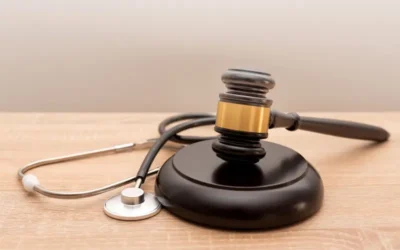Not only hospitals and insurers, lawyers also require proper organization and review of medical records for litigation purposes. Medical records review help attorneys to easily understand the critical medical aspects of the cases they handle. Whether on the plaintiff or defense side, they need to obtain and summarize voluminous medical records.
In any case, let that be medical malpractice, negligence, mass tort or personal injury, the validity of claims is established through examining the medical records. As medical records contain vital information regarding patients’ diagnosis, medication, medical and social history, and evaluations done by medical professionals, it is critical that these records are thoroughly analyzed for attorneys to litigate the cases with efficiency and expertise.
Evidences and record review requirement for each case are unique. For instance, mass tort cases need a focused review to identify the validity of Proof of Usage to the Proof of Injury as a basic necessity. Such a review helps to know the eligibility of the case, and thus attorneys can estimate the worth of the case. At the same time, for personal injury or tort claim, liability and damages have to be established to get the compensation from the court, regardless of whether it is intentional, negligence or strict liability. Attorneys have to find out whether the defendant is liable for the damages sustained, and, if so, the nature and extent of the damages. To meet such requirements, they need to get a clear and chronological understanding of medical records regarding all the minor and major medical events in that period.
Key Steps in Preparing a Medical Record Review
Record Organization and Indexing
Before carrying out a comprehensive review of the medical records collected, it is important to organize and index them. Often, the voluminous medical records received from healthcare facilities will be disorganized and confusing. Proper organization of records helps to make medical record analysis more efficient by determining if all the necessary records are available and identifying missing and duplicate records as well as any inconsistencies. Organization involves key steps such as –
- grouping records by factors such as physician visit, date of procedure and so on
- accurately capturing relevant data such as dates and treatments and highlighting them
- segregating duplicate documentation
- organizing into main categories and subsections
- creating log and indexing records with Bates numbering for a permanent record
- sorting data chronologically
- bookmarking and hyperlinking to facilitate faster access to records
- making the entire medical chart text-searchable using OCR software
Preparing Medical Case Chronology
Proper organization helps in preparing a clear chronology of events that assists with the timely preparation and review of the medical records. Medical case chronology refers to an accurate timeline of all medical encounters the patient experienced from the time of injury to the time of discharge. Once prepared, medical case chronology can be used at every stage of the case, as it will guide attorneys throughout the lifetime of the case, enabling to avoid potential mistakes. For instance, in worker’s compensation cases, medical case chronology provides a clear understanding whether the claimed damage is related to the causation.
Accurate chronologies can be prepared mainly in three ways-
- Abstraction, which is extracting the most important pieces of information from the records
- Episodic, i.e. highlighting relevant details from focused periods of care
- Collaborative, which is specific to claimant/patient problems
During this medical case chronology preparation, professional reviewers analyze and summarize all medical records, prepare a detailed timeline of all medical encounters, develop chronologies that contain details such as date of service, time of service, care provided and more facts pertaining to each record.
Creating Summaries
Creating brief or detailed summaries support reviewing even complex medical information. Summaries are created by reviewers and legal nurse consultants, who are well-versed in the medico-legal technology vocabulary. Accurate medical case summary includes important details such as date of admission, diagnosis, testing, patient case history, procedures and ultimate discharge from the healthcare facility and more. To be useful during the course of a trial, deposition summaries must be well-documented and neatly formatted. Depending on the case handled, comprehensive or a simple index summary can be prepared.
Medical summary preparation involves – analyzing each piece of information and categorizing data based on medical history, complaint, observations, diagnosis, prescribed treatments and more, to visualize the treatment time frame easily, sorting, organizing and indexing the medical records, with report types placed chronologically by date in forward or in reverse order. For a better understanding of the facts, hyperlinks can be embedded throughout the summary to facilitate navigation.
In many cases, it is important to prepare the summary of a witness’ deposition. Deposition summary requires extensive experience in the litigation field and good English writing skills. It can be prepared either in a narrative format or like an outline and the key points can be represented using graphs or charts.
Professional providers of medical review solutions provide great support for law firms in creating excellent deposition summaries and quality record reviews. They provide services of experienced medical reviewers and registered nurse consultants, who clearly understand all the intricate details in the medical records and ensure that these are extracted and presented clearly.




